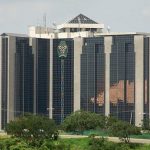NBS: persistent rise in food items, push inflation to 29.90 % in January
By Patience Ikpeme
In January, the cost of food and essential items kept going up, hitting a record high inflation rate of 29.90%, compared to 28.92% in December, as reported by the National Bureau of Statistics (NBS).
Food prices rose even more sharply, with a year-on-year increase of 35.41%, up from 24.32% in December. This was mainly due to higher prices for bread, cereals, potatoes, yams, oils, fats, fish, meat, fruits, coffee, tea, and cocoa.
Nigeria has been grappling with rising food prices for the past three years, worsened last May when the government, led by Bola Ahmed Tinubu, removed fuel subsidies. This led to tripled prices for items, including transportation and accommodations, exacerbating poverty and sparking protests in some cities.
In January, there were differences in inflation rates between urban and rural areas. Urban inflation was 31.95% year-on-year, up from 22.55% the previous year, while rural inflation was 28.10%, up from 21.13%. On a monthly basis, urban inflation rose by 2.72%, and rural inflation by 2.57%.
Inflation rates also varied across states. Kogi, Oyo, and Akwa Ibom had the highest year-on-year inflation rates, while Borno, Taraba, and Benue had the lowest. Ondo, Osun, and Jigawa saw the highest monthly increases, while Bayelsa, Yobe, and Ogun had the slowest.
For food inflation, Kogi, Kwara, and Rivers had the highest year-on-year increases, while Bauchi, Adamawa, and Kano had the slowest. Ondo, Osun, and Edo saw the highest monthly increases, while Bayelsa, Yobe, and Ogun had the slowest.




